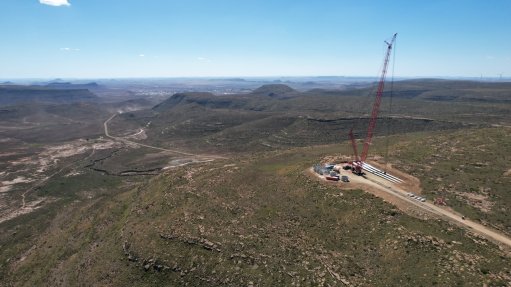Be in the black
Is South Africa in the black? Or does it have aspirations to be in the black? In terms of what does South Africa want to be in the black? Is it in wealth or the factors of production, or the financial viability and sustainability of State-owned enterprises? Is it essentially about a single word: ‘ownership’?
Currently, the only certainty is that politicians will inevitably get things wrong. All that can be debated is whether such wrongs will be intentional or deliberate.
Economics, on the other hand, is said to be a matter of common sense. But, contrary to popular belief, common sense is not that common at all. You do not believe me? A case in point is money. What is money? What do you consider money to be?
Why did South Africa have a liberation struggle? What was the ultimate economic objective? It might well be summed up by the verbatim phrase of former African National Congress spokesperson Smuts Ngonyama who said in 2007: “I didn’t join the struggle to be poor.” In an article headlined ‘Hold your nose – the smell of corruption’, which was published in The Economist’s edition of June 3, 2010, Ngonyama was described as “epitomising a prevailing culture of entitlement in the ruling party”. The article made reference to another issue that many associate with money. It stated: “In some of the State-owned companies, another problem has arisen: too many blacks, often with good political connections, have been deployed above their capabilities.”
It seems that the quest for money is confused with the attainment of wealth. Evidently, the new generation wealth was attained by being gained, not created. It is not a matter of semantics, it is a matter of transfer.
In South Africa, the next economic battle is looming – it will aim to gain control of the four factors of production by any means possible. Money, already gained, is not a factor of production. Money is but a means of exchange. Can you name the four? These are land (does this ring any bells), labour, capital and entrepreneurship.
The first factor of production, land, includes all natural resources (renewable or nonrenewable) that are based on the land, either on the surface or hidden below the surface. In South Africa, the landowner has no mineral rights. These were abolished on May 1, 2004. The income that resource owners earn is called rent.
The second factor of production is labour, which relates to the efforts of the people that make their contribution in the production of goods and services. The income earned through the supply of labour is called wages, which, for most people, constitute their largest income.
The third factor of production is capital. Just before you offer that capital is “wealth in the form of money” – it is not. Capital is, in fact, the machinery, tools and buildings used to produce goods and services. The income earned by owners of capital resources is called interest.
The fourth factor of production is entrepreneurship. An entrepreneur is a person who combines the other factors of production to earn a profit. The payment that an entrepreneur derives though entrepreneurship is what is known as profit.
In case you are still baffled by the fact that money is not a factor of production but that capital is, economists do not consider money as capital, as money is not a productive resource. Those that desire money, take note.
What is worrying is the fact that the political focus in South Africa has been on gaining wealth, not attaining it or even creating it. “Show me the money” should rightly be the South African moto. I contend that this behaviour is attributable to the fact that the four factors of production, and what money is, are misunderstood.
Comments
Press Office
Announcements
What's On
Subscribe to improve your user experience...
Option 1 (equivalent of R125 a month):
Receive a weekly copy of Creamer Media's Engineering News & Mining Weekly magazine
(print copy for those in South Africa and e-magazine for those outside of South Africa)
Receive daily email newsletters
Access to full search results
Access archive of magazine back copies
Access to Projects in Progress
Access to ONE Research Report of your choice in PDF format
Option 2 (equivalent of R375 a month):
All benefits from Option 1
PLUS
Access to Creamer Media's Research Channel Africa for ALL Research Reports, in PDF format, on various industrial and mining sectors
including Electricity; Water; Energy Transition; Hydrogen; Roads, Rail and Ports; Coal; Gold; Platinum; Battery Metals; etc.
Already a subscriber?
Forgotten your password?
Receive weekly copy of Creamer Media's Engineering News & Mining Weekly magazine (print copy for those in South Africa and e-magazine for those outside of South Africa)
➕
Recieve daily email newsletters
➕
Access to full search results
➕
Access archive of magazine back copies
➕
Access to Projects in Progress
➕
Access to ONE Research Report of your choice in PDF format
RESEARCH CHANNEL AFRICA
R4500 (equivalent of R375 a month)
SUBSCRIBEAll benefits from Option 1
➕
Access to Creamer Media's Research Channel Africa for ALL Research Reports on various industrial and mining sectors, in PDF format, including on:
Electricity
➕
Water
➕
Energy Transition
➕
Hydrogen
➕
Roads, Rail and Ports
➕
Coal
➕
Gold
➕
Platinum
➕
Battery Metals
➕
etc.
Receive all benefits from Option 1 or Option 2 delivered to numerous people at your company
➕
Multiple User names and Passwords for simultaneous log-ins
➕
Intranet integration access to all in your organisation


















